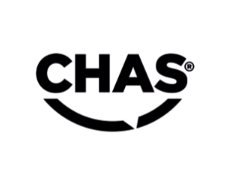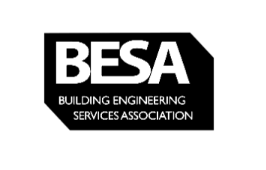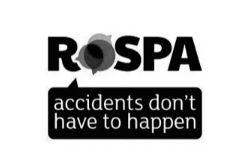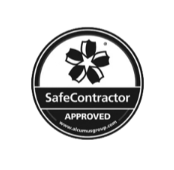The disposal of surplus, unwanted or expired medication is a crucial issue that requires care and taking appropriate action, whether you’re an individual clearing out your medicine cabinet at home, or a business managing pharmaceutical waste – such as clinics, nursing homes and hospitals. Medication can include commonly-used tablets and liquids – such as blister packs of paracetamol or antihistamines, antibiotics, or bottles of children’s paracetamol and ibuprofen; as well as controlled pills and solutions.
Improper disposal can harm other people and the environment, pose serious health risks, and lead to non-compliance with strict UK legislation governing the handling of medical waste.
In this blog, we’ll explore how medications should be disposed of safely, the legal requirements businesses must follow, and why proper disposal practices are essential. By the end, you’ll understand how phs can help you or your business navigate the complexities of disposal of medication UK legislation with ease.
Why proper medication disposal is important
Medications contain active ingredients that, if not disposed of correctly, can have harmful effects on people, animals, and the environment. Flushing medicines down the toilet or throwing them in the bin can contaminate water supplies, harm wildlife, and pose risks to public health.
For businesses, improper disposal of medication can result in hefty fines and reputational damage, as well as risks to staff and customers.
How to dispose of medication safely
For individuals
Disposing of medication at home requires careful consideration. Here’s how you can do it safely:
- Use designated drop-off points – Many pharmacies in the UK provide a disposal service where you can bring unused or expired medicines for safe disposal. These services are designed to handle medications in an environmentally friendly and compliant manner.
- Avoid flushing or bin disposal – Never flush medications down the toilet or dispose of them in household waste. This can lead to contamination of water supplies and landfills, where the active ingredients may leach into the environment.
- Check local guidelines – Some local authorities may offer community collection events or guidance on how to dispose of specific types of medication.

For businesses
Businesses, including pharmacies, healthcare providers, and veterinary practices, must adhere to strict disposal of medication UK legislation. Here’s what they need to know:
- Segregate waste – Medications should be separated from other types of waste, such as general rubbish or clinical waste. This ensures that they are handled and disposed of correctly.
- Use licensed disposal services – Businesses are legally required to use authorised waste carriers for the disposal of controlled medication – such as phs. These services ensure legal compliance with environmental and healthcare regulations.
- Maintain documentation – Businesses must keep records of their waste disposal activities, including the types and quantities of medication disposed of and the name of the licensed waste carrier.
- Comply with hazardous waste regulations – Certain medications, such as cytotoxic and cytostatic drugs, are classified as hazardous waste and must be treated accordingly. This includes using special containers and following strict protocols for their disposal.

Legal regulations for medication disposal in the UK
The disposal of medication UK legislation outlines specific rules for individuals and businesses. These regulations are designed to protect public health and the environment while ensuring accountability.
Key disposal of medication UK legislation includes:
The Controlled Waste Regulations (England and Wales) 2012 – This regulation governs how different types of waste, including pharmaceutical waste, must be managed and disposed of.
The Environmental Protection Act 1990 – This act requires businesses to ensure that all waste is stored, transported, and disposed of safely, without harming the environment.
The Hazardous Waste Regulations (England and Wales) 2005 – Medications classified as hazardous, such as certain chemotherapy drugs, must be handled in accordance with these regulations.
The Misuse of Drugs Regulations 2001 – For controlled substances, businesses must follow strict guidelines for disposal to prevent misuse or diversion.
Different rules for different medications
Not all medications are disposed of in the same way. Here’s a breakdown of common types of medication and how they should be handled:
- Over-the-counter medicines – These can often be returned to pharmacies for safe disposal. They are typically classified as non-hazardous pharmaceutical waste.
- Prescription medicines – Prescription drugs must be disposed of through licensed facilities to ensure their active ingredients are neutralised and do not pose a threat to the environment or public health.
- Controlled drugs – Medications like morphine or methadone are subject to additional controls under disposal of medication UK legislation. These must be rendered irretrievable before disposal to prevent misuse.
- Cytotoxic and cytostatic drugs – These hazardous medications, often used in cancer treatments, require specialised handling and disposal processes to ensure safety and compliance.
- Veterinary medicines – Veterinary practices must follow similar rules to those governing human medications, ensuring waste is segregated and disposed of using licensed carriers.
How phs can help with medication disposal
At phs, we provide comprehensive solutions for the safe and compliant disposal of medication. Our services are designed to help both individuals and businesses navigate the complexities of disposal of medication UK legislation, ensuring peace of mind and environmental protection.
Our services include:
- Licensed medication disposal – We are a fully licensed waste carrier, offering secure and environmentally friendly disposal of all types of medication, including hazardous and controlled drugs.
- Specialist waste bins – Our secure pharmaceutical waste bins are designed for easy segregation and collection of medications, ensuring compliance with legal requirements.
- Regular collection services – For businesses that generate pharmaceutical waste regularly, we offer scheduled collection services tailored to your needs.
- Compliance support – Our team provides expert guidance on compliance with UK legislation, helping businesses stay up to date with their legal obligations and avoid potential fines.
- Sustainability initiatives – At phs, we’re committed to minimising the environmental impact of waste disposal. Our processes are designed to reduce landfill use and promote sustainable practices.
Dispose of medication with confidence, with phs
Proper disposal of medication is essential for protecting public health, the environment, and for businesses to stay legally compliant. Whether you’re an individual or a business, following the correct procedures ensures that medications are safely removed from circulation and do not pose a risk.
With phs, you can trust that your pharmaceutical waste is handled responsibly and in line with disposal of medication UK legislation. From secure disposal solutions to expert compliance support, we’re here to make managing medication waste simple and stress-free.
To learn more about our medication disposal services, contact our expert technicians at phs today. Let us help you safeguard your business, your community, and the environment.



































